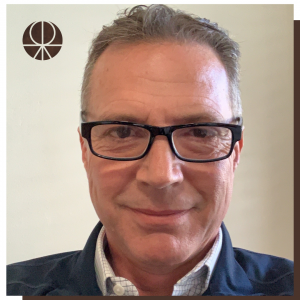One of the things that has been a great concern to the population at large when it comes to addiction–definitely the media, definitely the progressive end–is how we think about the world of addiction and the people going through the suffering involved with addiction. It is this stigma that comes along with the word “addict” or “alcoholic.”
There are a lot of campaigns I see online like End the Stigma and people talking about their sobriety and what they have been through. Generally, I do not know if I would say I am a fan of that…but I definitely like people to do what they feel is right, whatever makes you feel good about yourself.
What Actually Creates the Stigma of Addiction?
I think that there is a misunderstanding of where the stigma from addiction comes from.
What I would say is that the stigma from addiction does not come from the word “addict.” The stigma comes from when your brother steals your car battery out of your car because he has an addiction problem, and it pisses you off.
So, the reason why there is a stigma around addiction is because the behaviors that come along, not all the time, for all eternity, but a lot of the behaviors that come along with a lot of people that have addictions are horrid. You cannot trust people. They steal from you. They lie to you.
You try to have an authentic relationship, but they are incapable of having an authentic relationship. It is a giant pain in the ass to have a relationship with somebody that has an active addiction.
That is where the stigma comes from. It is not the word “addict.” You can change the words all you want, but the reality of it is until addiction is not a pain in the ass, there is going to be a stigma associated with it.
Can the “Addiction Stigma” Be Useful?
Now, on the other hand, I understand what people mean because you want people to be able to overcome their shame of having addiction by being able to say, “I have this problem,” so they can get better.
I agree with that, but on the other hand, you do kind of want some stigma against addiction.
I am raising children in this world, and is it the worst thing if my kids think that to be addicted is not that great?
I want my children to know addiction is not that great. So, I think we have a lot of confusion about what we mean when we talk about stigma, and even what exactly our goals are when we say “Bring down the stigma.”
Does Changing Terminology Make a Difference?
Clearly, the goals are to be able to help people get better. I mean, that is simple, but I do not think we are going to do that by playing with language.
I will give my funny example of this, “housekeeper.” It is an interesting word. To keep the house, I guess, is what it means. It is somewhat old-fashioned. It is not as old as “maid.” I very rarely hear people say, “Oh, this is my maid.” They say, “This is my housekeeper.” Now, the word changed somewhere from the ’80s and ’90s to now from “maid” to “housekeeper.” Prior to that, there was another word people used to use, it was called “servant,” right? Or the “help.”
So, these words changed, but the reality of other people cleaning up other people’s shit for their whole lives is still the same. Do you want to reduce the stigma of the word “housekeeper”? Well, I do not know. Maybe we should take a look at whether it is cool that we have a society where a certain class of people, often of a certain race, spend their entire lives serving another class of people often of another race, if we really want to deal with the problem.
Is Language Distancing Us from What’s Really Happening?
I feel the same way about addiction. Addiction is a human phenomenon. People have been addicts and alcoholics for as long as people have been.
So, yes, we want to acknowledge this is not a normal human part of life. We also want to acknowledge when it becomes a destructive addiction, it is not a good thing, and it should be somewhat stigmatized.
There is another reason why I would not be so quick to get rid of the terms “addict” or “alcoholic”.
We are in a time now with trigger warnings and people being very afraid of offending people with words–which is strange because we are in the most offensive times, in my opinion, that one could live in, but that is the hypocrisy of the time.
So, people have a hard time identifying as: “Hi, my name is Shy. I am an alcoholic.” or “Hi, my name is Shy. I am an addict.”
Whatever that is, and they go, “I do not want to identify because I am more than just an addict.” Of course, you are more than just an addict. I think everybody knows that, but what is the importance of identifying?
Well, in my mind, people are distancing themselves through language from the reality of what is actually happening.
When I was in active addiction, it was not a thing that I suffered from, meaning it actually was in the realm of the anti-logical, of the being of me, not the just doing of me.
I will give an example of this. My cousin Jason has been playing baseball since he was 5 years old. People that play baseball, people that really love baseball, could spot a baseball player even when they are not playing baseball. They go, “You are a baseball player.” Then he will go, “You are someone who often plays baseball.” “No, you are actually a baseball player. I see the way you walk, the way you talk, the way you wear your hat, in the ‘being’ sense of it is like a baseball player.”
I would say if you have ever met somebody who is a really bad junkie, it has invaded more than just their activity. It has to do with their being. There is something kind of almost essential there where you go like, “Man, the way this person’s posture is and the way he kind of looks up at me It is like, he is kind of an archetypal junkie.”
I am not saying that is great, and I realize that is probably somewhat offensive to go, “No, actually you are a junkie.” But I think it is that realization that you have, “Oh my God, I am a drug addict,” or at least “I am becoming a drug addict. I do not want to be that.”
Not: “I do not want to do that anymore.”
I do not want to BE that. I want to be someone else or something better.”
So, I think when we get rid of those words, we are sort of white-washing the situation.
I have sat with people with sleeve tattoos, out of the penitentiary, and in addiction programs, and I am like, “Hey, what are you here for? What is your drug of choice?”
They go, “I am opiate-dependent.”
I am like, “Opiate-dependent? Okay, doctor. What does that mean, you shoot heroin? You shoot dope? You do opium, right?”
I am not saying that to be offensive, I am saying it to get that person to connect to the reality of where they are at, and what they are becoming.
Being Comfortable with BEING
So, I think that… Because we live as a psychological society, we think about everything psychologically. We think about everything in kind of this far distance. We actually move away from the actuality of the being.
Like, “No, I am an addict.”
And: “Guess what? Right now, I am not an addict. I have been sober 17 years. My ways of being who I am in the fibers, over time working on myself…I have not used for a long time.”
“I am no longer an addict. I can identify as I am an addict in recovery.”
Or, “I am Shy. I am in recovery.”
That is part of my being, too. I am a person in recovery. I am not doing recovery.
Schedule a 30-min consultation with Yeshaia
Schedule Free ConsultationSchedule Free Consultation
We are Rooted in the Foundation of the 12-Steps and Believe in Long-Term Care
Read MoreRead More

